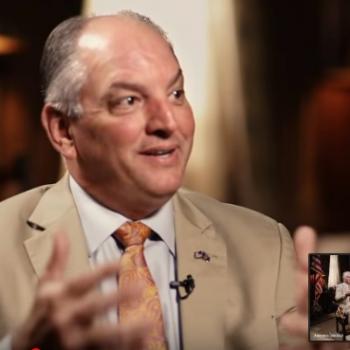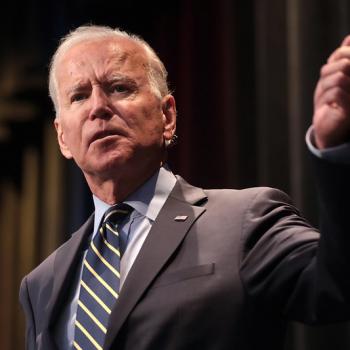From The New York Times:
President Trump lashed out at undocumented immigrants during a White House meeting on Wednesday, warning in front of news cameras that dangerous people were clamoring to breach the country’s borders and branding such people “animals.”
Mr. Trump’s incendiary comments came during a round-table discussion with state and local leaders on California’s so-called sanctuary laws, which strictly limit communication between local law enforcement and federal immigration officers, and which the Trump administration is suing to invalidate. It was hardly the first time the president has spoken in ugly and racially fraught terms about immigrants, but it underscored his lingering rage about immigration — the animating issue of his campaign and his tenure so far — and his frustration that he has not been able to do more to seal the nation’s borders.
As he has in numerous private meetings with his advisers at the White House, Mr. Trump used the session to vent his anger at the nation’s immigration laws, calling them “the dumbest laws on immigration in the world.” He exhorted his administration to “do much better” in keeping out undesirable people, including members of transnational gangs like MS-13.
“We have people coming into the country, or trying to come in — we’re stopping a lot of them,” Mr. Trump said in the Cabinet Room during an hourlong meeting that reporters had been allowed in to document. “You wouldn’t believe how bad these people are. These aren’t people, these are animals, and we’re taking them out of the country at a level and at a rate that’s never happened before.”
What are we to make of this? The church has spoken about human dignity many times. It is useful at this moment to remember the teachings which call on us to respect life.
Always.
At all times, in all forms, in all circumstances.
Here we stand. We choose life.
From Pope St. John Paul:
Human persons are willed by God; they are imprinted with God’s image. Their dignity does not come from the work they do, but from the persons they are.
From the catechism:
The divine image is present in every man. It shines forth in the communion of persons, in the likeness of the unity of the divine persons among themselves . Endowed with “a spiritual and immortal” soul, the human person is “the only creature on earth that God has willed for its own sake.” From his conception, he is destined for eternal beatitude.
From Pope Francis:
Human beings, while capable of the worst, are also capable of rising above themselves, choosing again what is good, and making a new start, despite their mental and social conditioning. We are able to take an honest look at ourselves, to acknowledge our deep dissatisfaction, and to embark on new paths to authentic freedom. No system can completely suppress our openness to what is good, true and beautiful, or our God-given ability to respond to his grace at work deep in our hearts. I appeal to everyone throughout the world not to forget this dignity which is ours. No one has the right to take it from us.
From Gaudium et Spes:
There is a growing awareness of the sublime dignity of human persons, who stand above all things and whose rights and duties are universal and inviolable. They ought, therefore, to have ready access to all that is necessary for living a genuinely human life: for example, food, clothing, housing, … the right to education, and work…This Council lays stress on reverence for the human person; everyone must consider one’s every neighbor without exception as another self, taking into account first of all life and the means necessary to living it with dignity, so as not to imitate the rich man who had no concern for the poor man Lazarus.
This is a slippery slope. In 2011, writer David Livingstone Smith described in “Less Than Human” how throughout history people have been robbed of dignity, and treated as subhuman or even called animals:
The Holocaust is the most thoroughly documented example of the ravages of dehumanization. Its hideousness strains the limits of imagination. And yet, focusing on it can be strangely comforting. It’s all too easy to imagine that the Third Reich was a bizarre aberration, a kind of mass insanity instigated by a small group of deranged ideologues who conspired to seize political power and bend a nation to their will. Alternatively, it’s tempting to imagine that the Germans were (or are) a uniquely cruel and bloodthirsty people. But these diagnoses are dangerously wrong. What’s most disturbing about the Nazi phenomenon is not that the Nazis were madmen or monsters. It’s that they were ordinary human beings.
When we think of dehumanization during World War II our minds turn to the Holocaust, but it wasn’t only the Germans who dehumanized their enemies. While the architects of the Final Solution were busy implementing their lethal program of racial hygiene, the Russian-Jewish poet and novelist Ilya Ehrenburg was churning out propaganda for distribution to Stalin’s Red Army. These pamphlets seethed with dehumanizing rhetoric: they spoke of “the smell of Germany’s animal breath,” and described Germans as “two-legged animals who have mastered the technique of war” — “ersatz men” who ought to be annihilated. “The Germans are not human beings,” Ehrenburg wrote, “… If you kill one German, kill another — there is nothing more amusing for us than a heap of German corpses.”
And finally, from Pope St. John Paul:
Life, especially human life, belongs to God; whoever attacks human life attacks God’s very self…A society lacks solid foundations when, on the one hand, it asserts values such as the dignity of the person, justice and peace, but then, on the other hand, radically acts to the contrary by allowing or tolerating a variety of ways in which human life is devalued and violated, especially where it is weak or marginalized. Only respect for life can be the foundation and guarantee of the most precious and essential goods of society, such as democracy and peace.
UPDATE: The president repeated the comment on Thursday, and clarified exactly who and what he was referring to.
From CNN:
President Donald Trump said Thursday he was referring to MS-13 gang members when he called some undocumented immigrants “animals” during an event at the White House a day earlier.
“I’m referring to the MS-13 gangs that are coming in. I was talking about the MS-13,” Trump said, insisting his comments were clear. “I’m actually surprised you’re asking this question.”Trump was unapologetic about his language and said he’d use it again.“These are animals. They’re coming in to our country and we’re getting them out,” he said. “I referred to them as animals. And guess what: I always will.”Trump on Wednesday did not directly refer to MS-13 when he used the term “animals” on Wednesday, but his comments came after Fresno County Sheriff Margaret Mims talked about her struggles in navigating state and federal laws to allow Immigration and Customs Enforcement to “find the bad guys” in their jails and specifically said “there could be an MS-13 member.”
That’s when Trump interjected: “We have people coming into the country, or trying to come in. … You wouldn’t believe how bad these people are. These aren’t people. These are animals.”
















